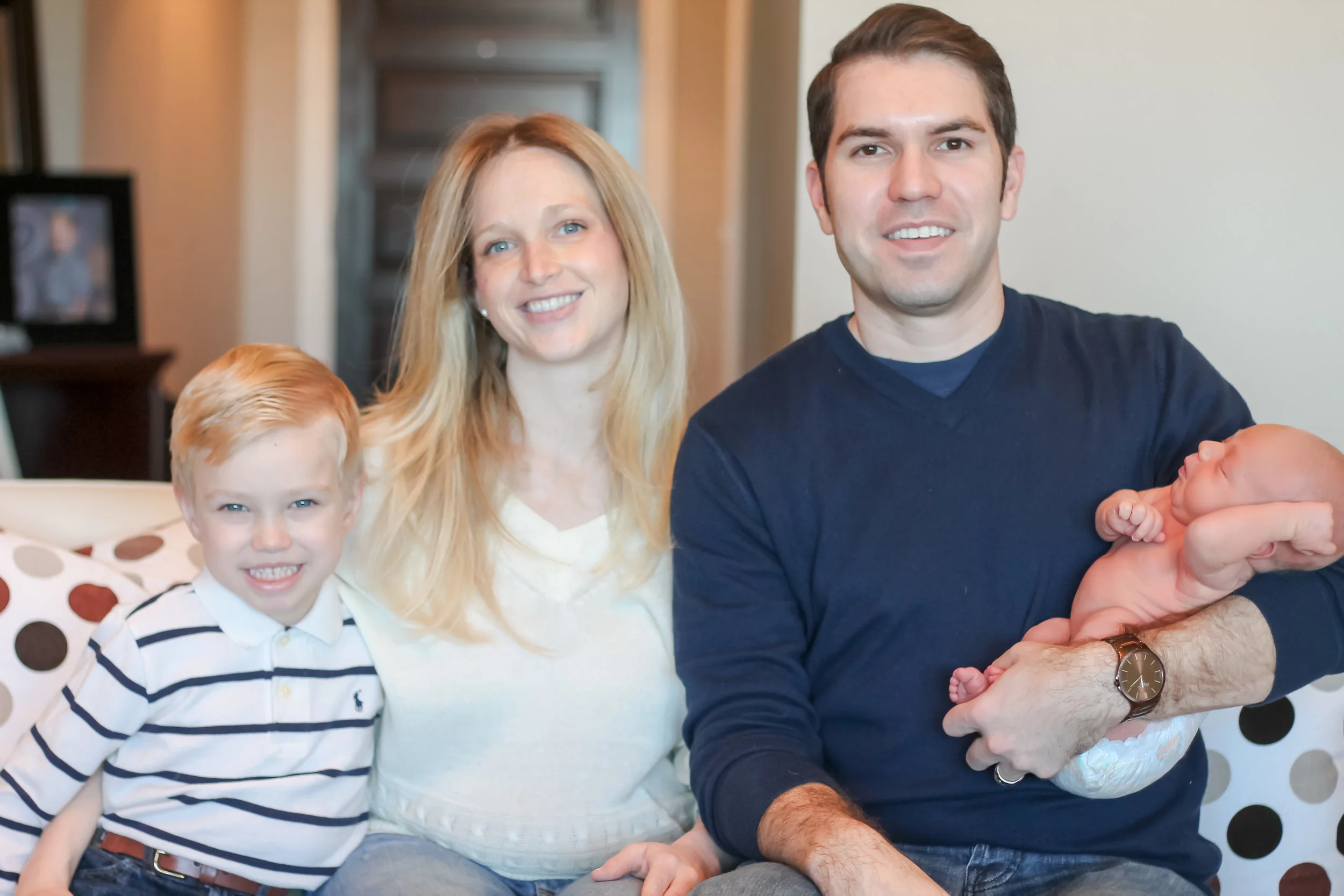When I called Ali Dodd for our phone interview on a Wednesday evening, she’d just arrived home from her job as a physical therapist.
She was already in “Mom gear.”
“Presley, I need to talk on the phone for just a little bit, Ok?” I heard Dodd implore her son on the other side. “I’m sorry. Please go ask Daddy.”
Then, she offered me the next thirty minutes of her time.
Dodd seems to hold many roles. The obvious ones are mother, wife and physical therapist. Then there are the less apparent titles— paid leave activist, founder of Shepard’s Watch and grieving mother.
On April 6, 2015, Ali and husband Derek Dodd lost their second child, Shepard, because of unsafe sleeping practices administered by a daycare provider.
“According to the police report, Shepard was put to sleep in an unbuckled car seat and placed on the floor in a room, unsupervised,” reported KFOR news last October. When the provider came back to check on him 90 minutes later, it was to find Shepard reportedly blue and not breathing. Shepard died that day at 11-weeks-old.
Shepard’s Watch Foundation
Dodd established the foundation as a response to an epidemic caused, in part, by under education.
“600 to 800 children lose their lives in day care nationally every year,” Dodd said.
Though an educational platform at its core, Shepard’s Watch has a few functions. It aims to spread information about safe sleep practices and finding day cares that implement them. A brochure Dodd developed on the topic lays out tips such as “Always place baby on their back for every sleep time.” and “Dress the baby, not the crib.”
Shepard’s Watch also has an active Facebook community—its membership has soared to nearly six thousand since its establishment last year.
“It’s a voice for parents whose children’s lives were cut short in childcare,” Dodd said.
“I’m not alone and neither are many of the parents who are on that page.”
Finally, Dodd said “Raising the standard in child care is a huge goal of ours.”
Practical Solutions
For Dodd, this involves changing legislation concerning childcare in Oklahoma to regulate practices and ensure safety. Recently, her advocacy yielded results.
“Three bills were passed and signed into law this session,” Dodd said.
One of the bills is called Shepard’s Law. It concerns childcare facilities and prohibits certain equipment and placement of children in certain areas.
Another bill asks that daycare providers inform parents if they don’t hold insurance.
“In the state of Oklahoma 47 percent of day cares, that includes in-home and centers, do not carry insurance because they don’t have to,” says Dodd. “But at least now they have to notify the parent.”
The third bill concerns the Child Care Advisory Committee, and seeks to make updating rules more efficient.
“I can’t believe he [Shepard] had to lose his life in order for Oklahoma to decide that safe sleep education is important,” Dodd said. “The businesses that are in charge of watching our children should be held accountable. That’s only fair.”
Parental Leave Activist
The United States is the only country with an advanced economy that does not mandate any paid parental leave.
“25 percent of women go back to work in two weeks,” Dodd said about new mothers.
“Then the vast majority go back in six to eight weeks. At the riskiest time, we are separating an infant from their family. And it’s that infant who pays the price.”
It is a pro-life and pro-family issue that surpasses party divisions, Dodd believes.
She can’t lobby for paid parental leave through Shepard’s Watch but advocates for it as Ali Dodd.
“As parents we should be allowed time with our infants and be the ones protecting them.”
Change in the Community
I asked Dodd about taking an active role in raising awareness and seeking change.
“It’s not about ‘obviously it had to be done’— it’s that I could. I’ve met so many moms and dad who just could not.”
Visit the Shepard’s Watch Facebook page for more details.

